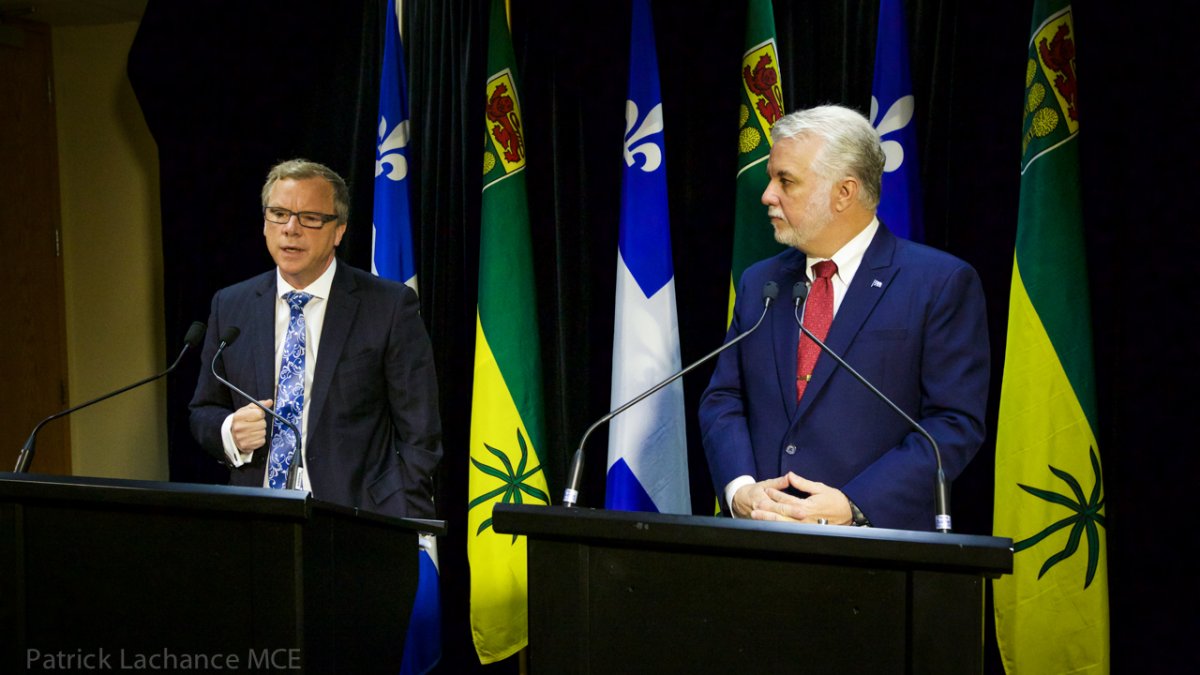MONTREAL – Saskatchewan Premier Brad Wall took his pro-Energy East road show into relatively hostile territory on Thursday as he met with Quebec counterpart Philippe Couillard in a province where the proposed pipeline project has many detractors.

“Pipelines aren’t perfect, but they are the safest and most efficacious way to move energy across the country,” Wall told a news conference alongside Couillard.
While stating Energy East would benefit the country as a whole, Wall acknowledged Quebec has “unique questions” that need answering given most of the new construction for the $15.7-billion project would take place in the province.
READ MORE: Sask. Premier Brad Wall wades into Twitter battle with activist Naomi Klein
“The fact remains that the new construction is almost all in this province and that does change things for this province. The people of Quebec will have different questions, and rightfully so. And it is up to the proponent to answer those questions.”
The most recent official opposition to the TransCanada (TSX:TRP) project surfaced Wednesday when the Assembly of First Nations of Quebec and Labrador formally stated it was against it.
Couillard called the First Nations announcement “a significant event” that “should not be downplayed.”
READ MORE: Assembly of First Nations in Quebec, Labrador, formally opposes Energy East
In May, Canada officially adopted the United Nations Declaration on the Rights of Indigenous Peoples, which Couillard pointed out includes obtaining free and informed consent when it comes to resource development.
Exactly what this means “will have to be resolved and made explicit at some point,” he said.
Many politicians, environmentalists and other critics in the province also believe the ecological risks outweigh the economic rewards.
Wall’s visit to Quebec came after he went to Saint John, N.B., on Wednesday and gave a speech to the Empire Club of Canada in Toronto a day earlier.
He and Couillard also discussed other topics, including carbon credits and federal health funding.
- What is a halal mortgage? How interest-free home financing works in Canada
- Ontario doctors offer solutions to help address shortage of family physicians
- Capital gains changes are ‘really fair,’ Freeland says, as doctors cry foul
- Canada will take bigger economic hit than U.S. if Trump wins election: report



Comments